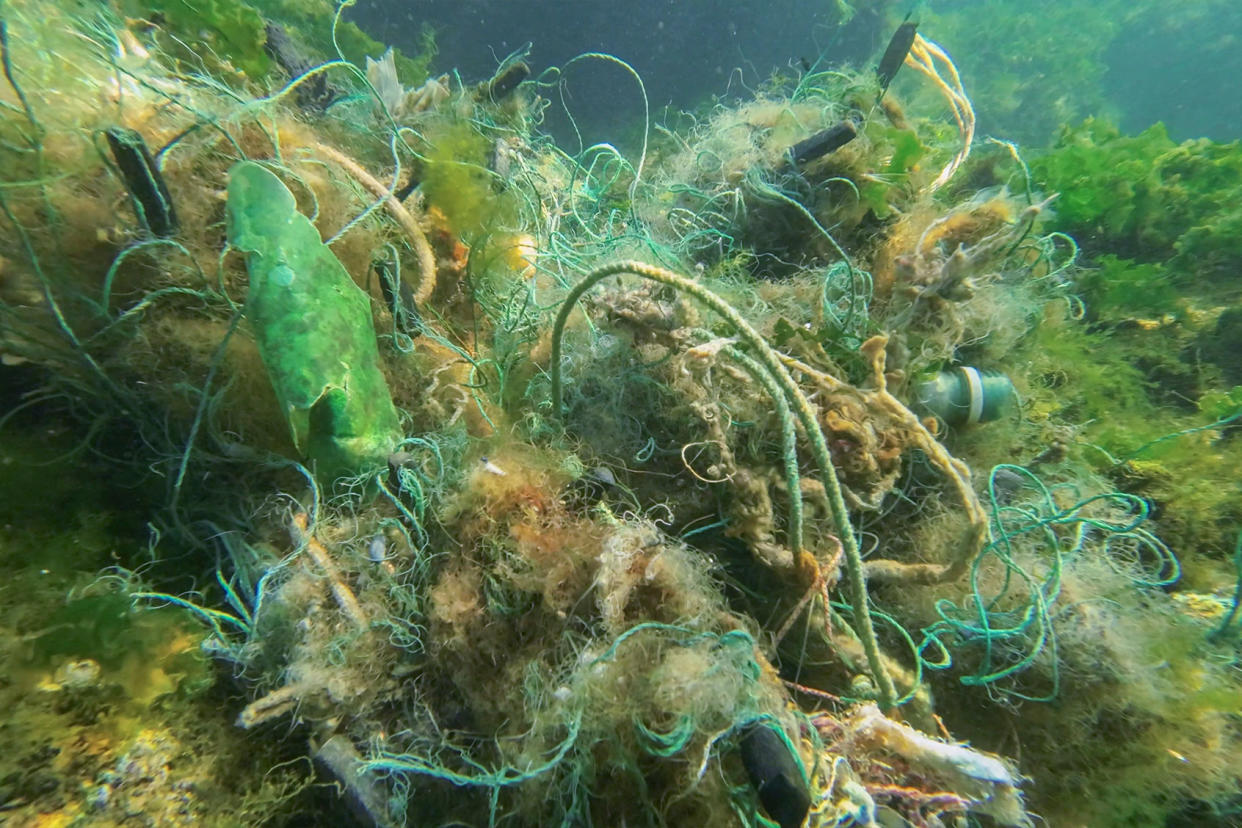We're dumping less plastic in the ocean than previously thought. It's still a dangerous amount

The good news is that, according to recent research in the journal Nature Geoscience, we're dumping less plastic into the ocean than previously estimated. The bad news is that it's still a dangerously high amount that will have dramatic negative effects for the environment if not mitigated.
From an ecological standpoint, the new study is equivalent to a doctor telling a patient with high cholesterol: Your cholesterol is still dangerously high, but perhaps not as bad as we previously thought.
The difference is that, for the planet Earth, the "cholesterol" is plastic pollution clogging up and contaminating its oceans. According to researchers from Utrecht University in the Netherlands, "long-lived plastic pollution in the world's oceans, which our model suggests is continuing to increase, could negatively impact ecosystems without countermeasures and prevention strategies." At the same time, like a patient with high cholesterol who finds out that it at least is not even higher, the authors argue there is not as much plastic being dumped into the oceans as previously estimated.
To ascertain the quantity of plastic in Earth's oceans, the researchers analyzed a wealth of data, such as "different marine reservoirs, including coastlines, the ocean surface and the deep ocean" while analyzing plastic particles ranging in size from "0.1–1,600.0 mm." Ultimately they concluded that larger plastics bigger than 25 millimeters contribute to "more than 95% of the initially buoyant marine plastic mass: 3,100 out of 3,200 kilotonnes for the year 2020."
Additionally, they determined that annual human plastic pollution in the ocean equals "about 500 kilotonnes per year, less than previous estimates." Previous annual estimates placed plastic pollution in the ocean at roughly "800–2,400 kilotonnes from rivers and 4,800–23,000 kilotonnes from coastal regions."
At the same time, the study's authors emphasized that plastic pollution in the ocean is dangerous for Earth's future. A chief problem, they identified, is that the amount of plastic being dumped into the ocean continues to increase by roughly 4% each year.
"Without further mitigation strategies and clean-up efforts, our estimated growth rate of 4% per year has the potential to double the plastic standing stock within two decades," the authors write, later adding that "the combination of a projected exponentially increasing input and long persistence of marine plastics means a likely increasing negative impact of marine plastic pollution on ecosystems in the future."
Want more health and science stories in your inbox? Subscribe to Salon's weekly newsletter The Vulgar Scientist.
There are a number of reasons why environmentalists are concerned about the amount of plastic in our oceans. From the perspective of animals' rights, plastic pollution is known to cause endless hardships, from drinking straws getting painfully stuck up turtles' noses to Cape fur seals being torturously tangled in discarded fishing gear, often on multiple occasions in a single lifetime.
A 2019 study by Duke University student Caroline Gordon for the Nicholas School of the Environment chronicled how "at least 700 species worldwide have been affected by plastic ocean pollution, including 84% of sea turtle species, 44% of all seabird species, and 43% of all marine mammal species. It is also estimated that one in three marine mammals have been found tangled in some type of marine litter, such as lost fishing gear or plastic bags."
There are also human health concerns associated with plastic pollution in the oceans. In 2021, Salon discussed these issues with John Hocevar, Oceans Campaign Director for Greenpeace USA.
"The plastic commonly used in packaging contains thousands of chemicals that are known carcinogens [a term for cancer-causing agents] and endocrine disruptors," Hocevar told Salon. "Chemicals from packaging can leach out of packaging into our food, particularly when the plastic is heated. Once we're done with the plastic packaging, it goes into a landfill or an incinerator, or often straight into the environment. Very little of it is recycled."
Hocevar added, "If it's incinerated, there are extremely dangerous chemicals called dioxins that can be produced which cause cancer and other health impacts. If it's landfilled, the chemicals can still leach out into water and soil or be blown into the air. At this point, we've put so much plastic into our environment that we're eating it, breathing it and drinking it every day."
Additionally, there are chemicals in many commonly-used plastics that have been linked to infertility. Dr. Shanna Swan, a professor of environmental medicine and public health at Mount Sinai School of Medicine in New York City, spoke with Salon in 2021 about that aspect of the plastic pollution crisis — particularly as it involves "endocrine disruptor" chemicals like phthalates and bisphenols.
"These chemicals have a direct action on the steroid hormones, and the steroid hormones are critical for proper development during pregnancy," Swan explained. Because they interfere with the fetal development of male humans, they are linked to inadequate sperm count, genital birth defects and reproductive diseases like testicular cancer.
Finally there is the impact that plastic pollution has on communities which directly depend on the ocean for survival. Erin Simon, head of plastic waste and business at the World Wildlife Fund (WWF), broke down this problem for Salon in 2021.
"We also know that we have these areas, where a lot of this plastic waste is persisting and collecting, in coastal communities, right at the ends of waterways entering our oceans, and those are areas where you have a lot of communities that depend highly on fishing for their livelihoods and food," Simon told Salon. "And because of the increase of plastic rates, they're having to travel further off shore. It costs them more in fuel and it means they may make less money. They may not be able to provide that for their family."
Read more
about plastic pollution

